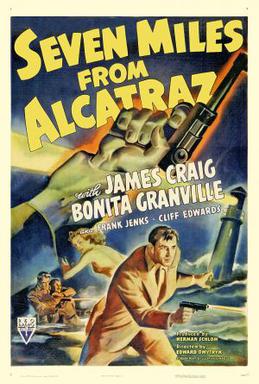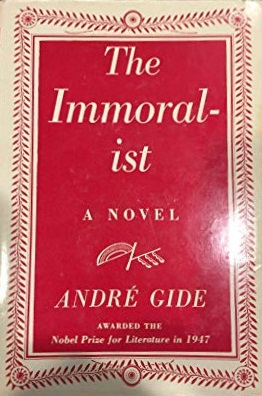The 50th Anniversary Of The Summer Of Love (1967)-From The Archives-FEAR AND LOATHING ON CAMPAIGN TRAIL 2008
COMMENTARY
In my old age I am getting a little weak-kneed about having to wade through the basically vacuous blather coming out of the Democratic and Republican presidential nominating processes. While we are in a little period of ‘doldrums’ before the deluge I keep falling back to the work of Hunter Thompson on earlier presidential campaigns to try to keep a little sanity. Here’s a little tribune to the fallen journalist. Damn, Hunter we sure as hell could use you now. Call me collect from wherever you are. I’ll gladly accept the charges. Selah.
This commentary was originally used as part of a review of Hunter Thompson's Songs of the Doomed. Since most of the points I made in my review of that book apply here I will let that review stand in here for the essential thrust of his whole body of political work. Obviously each book written by Thompson on the various presidential campaigns is formatted differently but whether Thompson was skewering the Nixon era, the Reagan era, the Clinton era or the Bush eras the song is the same. And it was not (and is not) pretty.
Generally thinkers and writers who work outside the realm of bourgeois society, notably socialists and other progressive thinkers, have done the most the trenchant social criticism, commentary and analysis complete with a prescriptive social program ripe for implementation. Bourgeois society rarely allows itself, in self-defense, to be skewered by trenchant criticism from within. This was particularly true when it came from a known dope fiend, gun freak and all-around lifestyle addict like the late, lamented Dr. Hunter S. Thompson. Although he was far from any thought of a socialist solution and would reject such a designation we could travel part of the way with him. We saw him as a kindred spirit. He was not one of us- but he was one of us. All honor to him for pushing the envelope of journalism in new directions and for his pinpricks at the hypocrisy of bourgeois society. Such men are dangerous.
I am not sure whether at the end of the day Hunter Thompson saw himself or wanted to been seen as a voice, or the voice, of his generation but he would not be an unworthy candidate. In any case, his was not the voice of the generation of 1968 being just enough older to have been formed by the earlier, less forgiving milieu of the 1950's. His earlier writings show his struggle to break out of formalistic journalism. Nevertheless, only a few, and with time it seems fewer in each generation, allow themselves to search for some kind of truth even if they cannot go the whole distance. This compilation under review is a hodgepodge of articles over the best part of Thompson's career. As with all journalists, as indeed with all writers especially those who are writing under the gun of a deadline for mass circulation media these works show an uneven quality. However the total effect is to blast old bourgeois society almost to its foundations. Others will have to push on further.
One should note that `gonzo' journalism is quite compatible with socialist materialism. That is, the writer is not precluded from interpreting the events described within himself/herself as an actor in the story. The worst swindle in journalism, fostered by the formal journalism schools, as well as in other disciplines like history and political science is that somehow one must be `objective'. Reality is better served if the writer puts his/her analysis correctly and then gets out of the way. In his best work that was Hunter's way.
As a member of the generation of 1968 I would note that this was a period of particular importance which won Hunter his spurs as a journalist. Hunter, like many of us, cut his political teeth on one Richard Milhous Nixon, at one time President of the United States and all- around political chameleon. Thompson went way out of his way, and with pleasure, skewering that man when he was riding high. He was moreover just as happy to kick him when he was down, just for good measure. Nixon represented the `dark side' of the American spirit- the side that appears today as the bullyboy of the world and as craven brute. Sound familiar? If for nothing else Brother Thompson deserves a place in the pantheon of journalistic heroes for this exercise in elementary political hygiene. Anyone who wants to rehabilitate THAT man before history please consult Thompson's work. Hunter, I hope you find the Brown Buffalo wherever you are. Read this book. Read all his books.
Zack James’ comment (June 2017):
You know it is in a way too bad that “Doctor Gonzo”-Hunter S Thompson, the late legendary journalist is not with us in these times both this 50th anniversary commemoration of the Summer of Love, 1967 which he worked the edges of while he was doing research (live and in your face research by the way) on the notorious Hell’s Angels. His “hook” through Ken Kesey and the Merry Pranksters down in Kesey’s place in La Honda where many an “acid test” took place and where for a time the Angels, Hunter in tow, were welcomed. He had been there and later as well when he saw the ebb tide of the 1960s coming a year or so later. He would have “dug” the exhibition at the de Young Museum at the Golden Gate Park highlighting the events of the period.
Better yet he would have had this Trump thug wrapped up and bleeding from all pores just like he regaled us with the tales from the White House bunker back in the days when Trump’s kindred one Richard Milhous Nixon, President of the United States and common criminal was running the same low rent trip before he was run out of town by his own like some rabid rat. Hunter Thompson wherever you are –help. Selah. Enough said-for now
COMMENTARY
In my old age I am getting a little weak-kneed about having to wade through the basically vacuous blather coming out of the Democratic and Republican presidential nominating processes. While we are in a little period of ‘doldrums’ before the deluge I keep falling back to the work of Hunter Thompson on earlier presidential campaigns to try to keep a little sanity. Here’s a little tribune to the fallen journalist. Damn, Hunter we sure as hell could use you now. Call me collect from wherever you are. I’ll gladly accept the charges. Selah.
This commentary was originally used as part of a review of Hunter Thompson's Songs of the Doomed. Since most of the points I made in my review of that book apply here I will let that review stand in here for the essential thrust of his whole body of political work. Obviously each book written by Thompson on the various presidential campaigns is formatted differently but whether Thompson was skewering the Nixon era, the Reagan era, the Clinton era or the Bush eras the song is the same. And it was not (and is not) pretty.
Generally thinkers and writers who work outside the realm of bourgeois society, notably socialists and other progressive thinkers, have done the most the trenchant social criticism, commentary and analysis complete with a prescriptive social program ripe for implementation. Bourgeois society rarely allows itself, in self-defense, to be skewered by trenchant criticism from within. This was particularly true when it came from a known dope fiend, gun freak and all-around lifestyle addict like the late, lamented Dr. Hunter S. Thompson. Although he was far from any thought of a socialist solution and would reject such a designation we could travel part of the way with him. We saw him as a kindred spirit. He was not one of us- but he was one of us. All honor to him for pushing the envelope of journalism in new directions and for his pinpricks at the hypocrisy of bourgeois society. Such men are dangerous.
I am not sure whether at the end of the day Hunter Thompson saw himself or wanted to been seen as a voice, or the voice, of his generation but he would not be an unworthy candidate. In any case, his was not the voice of the generation of 1968 being just enough older to have been formed by the earlier, less forgiving milieu of the 1950's. His earlier writings show his struggle to break out of formalistic journalism. Nevertheless, only a few, and with time it seems fewer in each generation, allow themselves to search for some kind of truth even if they cannot go the whole distance. This compilation under review is a hodgepodge of articles over the best part of Thompson's career. As with all journalists, as indeed with all writers especially those who are writing under the gun of a deadline for mass circulation media these works show an uneven quality. However the total effect is to blast old bourgeois society almost to its foundations. Others will have to push on further.
One should note that `gonzo' journalism is quite compatible with socialist materialism. That is, the writer is not precluded from interpreting the events described within himself/herself as an actor in the story. The worst swindle in journalism, fostered by the formal journalism schools, as well as in other disciplines like history and political science is that somehow one must be `objective'. Reality is better served if the writer puts his/her analysis correctly and then gets out of the way. In his best work that was Hunter's way.
As a member of the generation of 1968 I would note that this was a period of particular importance which won Hunter his spurs as a journalist. Hunter, like many of us, cut his political teeth on one Richard Milhous Nixon, at one time President of the United States and all- around political chameleon. Thompson went way out of his way, and with pleasure, skewering that man when he was riding high. He was moreover just as happy to kick him when he was down, just for good measure. Nixon represented the `dark side' of the American spirit- the side that appears today as the bullyboy of the world and as craven brute. Sound familiar? If for nothing else Brother Thompson deserves a place in the pantheon of journalistic heroes for this exercise in elementary political hygiene. Anyone who wants to rehabilitate THAT man before history please consult Thompson's work. Hunter, I hope you find the Brown Buffalo wherever you are. Read this book. Read all his books.






